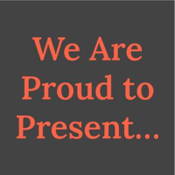
We Are Proud to Present A Presentation about the Herero of Namibia, Formerly Known as Southwest Africa, From the German Sudwestafrika, Between the Years 1884-1915
Play
Writer:Overview
Synopsis
Often shortened to We Are Proud to Present, the full title of Jackie Sibblies Drury’s breakthrough play doesn’t roll off the tip of the tongue-but, then again, nothing about the play’s content is easy. Six actors of varying backgrounds and personal experiences have gathered to create scenes dramatizing the genocide of the Herero people during the German occupation of what is now Namibia. At first, it feels like we’re watching some rather egotistical actors at work. In that sense, the play operates a bit like a play about actors, rich with archetypes and in-jokes that theatre people will recognize. But what begins as a rather ordinary rehearsal for just another piece of theatre becomes a much more personal and sometimes painful exploration as the past collides with the present and reality collides with fiction. The play floats in between two different modes, labeled by Sibblies Drury as “process” and “presentation”. In the “process” scenes, we see the actors at work preparing their presentation. In the “presentation” scenes, we see the actors actually performing the presentation, embodying multiple people as they enact dramatized scenes from the genocide. Summarized by critics as “stunning, fantastically funny, and emotionally exhausting”, We Are Proud to Present is an inventive piece of metatheatre. Moving from achingly funny to devastatingly painful at a whiplash-inducing pace, the narrative raises some difficult questions and sparks timely and challenging conversations around race, identity, and storytelling.
Show Information
Context
Plot
Characters
| Name | Part Size | Gender | Vocal Part |
|---|---|---|---|
|
Lead |
Female |
Non-singer |
|
|
Lead |
Male |
Non-singer |
|
|
Lead |
Male |
Non-singer |
|
|
Lead |
Male |
Non-singer |
|
|
Lead |
Male |
Non-singer |
|
|
Ensemble |
Male |
Non-singer |
Songs
A song with an asterisk (*) before the title indicates a dance number; a character listed in a song with an asterisk (*) by the character's name indicates that the character exclusively serves as a dancer in this song, which is sung by other characters.
Monologues
Scenes
Key Terms
An actor who specializes in portraying distinctive, often supporting roles.
The mass extermination of a group, portrayed in theatre to address themes of atrocity, remembrance, and moral responsibility.
A form of self-referential drama where the play draws attention to its own theatricality. This device challenges the audience’s suspension of disbelief and is used in Epic Theatre and postmodern works.
Videos
Quizzes
Themes, Symbols & Motifs
Sorry! We do not currently have learning modules for this guide.
Quote Analysis
Sorry! We do not currently have learning modules for this guide.
